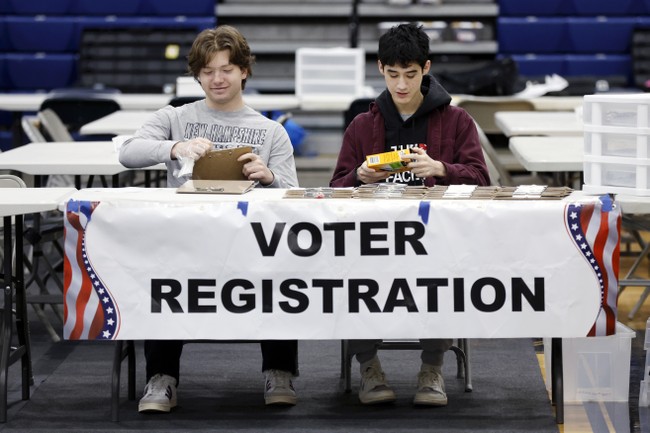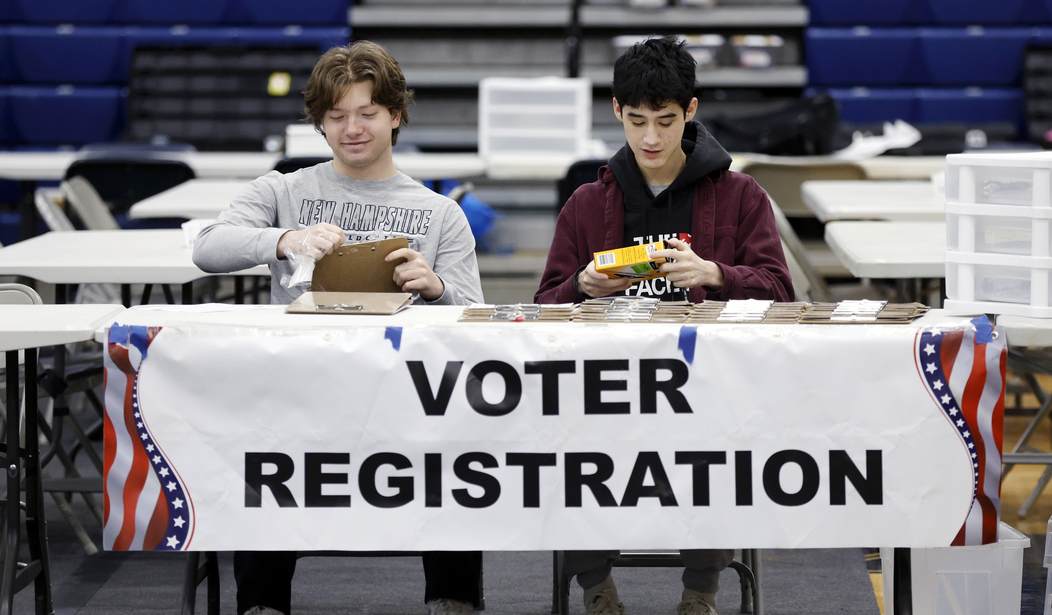The question of who should be allowed to register and vote in American elections ought to be one of the simplest in our republic. Only U.S. citizens are eligible. Yet under current federal regulations, and in practice across much of the country, the system relies largely on nothing more than an honor code – applicants check a box on the National Mail Voter Registration Form affirming citizenship. No documents are required. This is a glaring vulnerability in an era of large-scale immigration, border enforcement that can swing wildly between tough and virtually nonexistent, and waning public confidence in election integrity.
That’s why America First Legal (AFL) has petitioned the U.S. Election Assistance Commission (EAC) to amend its regulations and the federal form to require proof of citizenship before any applicant is added to the voter rolls. The request is modest, lawful, and necessary to shore up faith in elections. The EAC should grant it.
The National Voter Registration Act of 1993 – colloquially known as the “Motor Voter” law – established the federal mail-in form to standardize voter registration across states. Nothing in the statute prohibits reasonable requirements for applicants to prove eligibility. Citizenship is not a technicality; it is the bedrock condition of the franchise. While states can and do adopt procedures to ensure eligibility, the federal form preempts them when used. The result is a patchwork in which noncitizens who obtain the form – sometimes at the behest of activist groups – need only sign an attestation.
Critics insist that noncitizen voting is exceedingly rare. But even if the known instances are few, the system as designed makes detection almost impossible. That is precisely the problem: A regulatory regime that forbids meaningful verification and then proclaims the absence of evidence as evidence of absence is not a safeguard. It is wishful thinking.
The AFL petition doesn’t reinvent the wheel. Proof of citizenship is already standard practice in many facets of American life. Applicants for passports, Social Security, and certain jobs must present documentation. States such as Arizona and Kansas have adopted similar measures for voter registration, only to find themselves entangled in litigation that points back to the deficiencies of the federal form. By requiring documentary proof nationwide, the EAC would harmonize standards, resolve conflicts, and restore clarity.
Opponents will argue that the change is a solution in search of a problem. But public confidence in elections is not an abstract concern. An October 2024 Gallup poll found that 83 percent of adults surveyed believed voters should provide proof of citizenship before registration. A July 2025 survey conducted for Tea Party Patriots Action by McLaughlin & Associates confirms that number – 83 percent support requiring proof of citizenship to register to vote. The growing perception that foreign nationals might exploit loopholes undermines trust in outcomes. Trust, in turn, is the currency of democracy. Requiring evidence of citizenship would reassure voters that ballots are cast only by those entitled to do so.
The courts have recognized the states’ legitimate interest in protecting their rolls. In 2013, the Supreme Court in Arizona v. Inter Tribal Council held that while Arizona could not unilaterally impose its proof-of-citizenship requirement on the federal form, the state could petition the EAC to alter the form accordingly. That is exactly what AFL is now urging the commission to do on behalf of all states. The legal pathway is clear.
Administratively, the burden is minimal, and compliance is not difficult. Acceptable documents include a birth certificate, passport, naturalization certificate, or other official records most citizens already possess. States can design processes to accommodate applicants who need assistance, just as they do in other contexts. The objections that documentation requirements are “disenfranchising” are overblown. Citizens are not disenfranchised by being asked to demonstrate the very status that entitles them to vote.
We should not continue with a system that erodes confidence and invites abuse. Last year alone, thousands of noncitizens were removed from the voter rolls in Ohio, Alabama, and Virginia, none of which is a so-called “Sanctuary” state where immigration law is deliberately not enforced; how many noncitizens could be found on the voter rolls of states like California, New York, and Illinois, which proudly tout their refusal to enforce immigration law? The wise course is prevention, not postmortem action that smacks of barn-door closing.
The EAC is not supposed to be a passive body. Congress created it to maintain uniformity, transparency, and security in federal elections. If the Commission is serious about those duties, it should welcome the AFL petition as an opportunity to strengthen the system. Refusing to act would leave a nationwide vulnerability in place and signal indifference to legitimate concerns.
As significant as this change would be, a future EAC could, theoretically, reverse course. And the administrative actions of a commission, even one with the authority of the EAC, are no substitute for a law passed by the Congress and signed by the president. That’s why Congress must pass H.R. 22, the SAVE Act, to enshrine the change permanently in statute.
Citizenship is the defining line of the American political community. It carries rights, responsibilities, and privileges earned by birth or by lawful naturalization. Voting is the most important of those privileges. Asking for proof that a registrant meets the threshold is not extreme. It is common sense.
The EAC has opened a 60-day period for public comment, which expires on October 20. Citizens who want to comment can do so here.
The EAC should adopt the AFL petition and make citizenship verification a national standard. Our republic will be stronger for it.
Jenny Beth Martin is Honorary Chairman of Tea Party Patriots Action.
Editor’s Note: Every single day, here at Townhall, we will stand up and FIGHT, FIGHT, FIGHT against the radical left and deliver the conservative reporting our readers deserve.
Help us continue to tell the truth about the Trump administration and its successes. Join Townhall VIP and use promo code FIGHT to get 60% off your membership.





